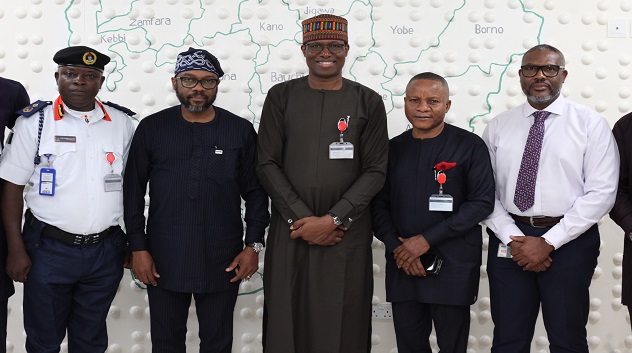Telecom
Global Coalition Formed to Make Smartphones Affordable Worldwide

A new global coalition made up of the World Bank Group, the ITU and the WEF Edison Alliance have been formed to drive innovative solutions to boost handset affordability for some of the world’s poorest populations.

According to GSMA, the coalition will collaborate to improve access to affordable internet-enabled devices to close the ‘Usage Gap’, which holds back around three billion people worldwide from maximising their potential in the global digital economy.
Mobile remains the primary – and often only – way people in Low- and Middle-Income Countries (LMICs) access the internet, accounting for 84% of broadband connections in 2023.
Yet three billion people – 38% of the world’s population – live in areas covered by mobile internet but do not use it due to barriers, including digital literacy and skills, lack of relevant content, online safety and access. Handset affordability is often recognised as the most significant barrier to get people online.
The new coalition will assess multiple ‘levers’ to reduce the cost of entry into the digital economy for low-income populations, with particular focus on LMICs and areas where handset affordability presents the highest barrier to getting online, such as in Sub-Saharan Africa and South Asia.
By exploring new solutions including ‘de-risking’ financing mechanisms, with the support of the World Bank Group, the coalition will enhance and complement ongoing efforts to expand digital access and affordability.
Going forward, the GSMA will continue to facilitate close collaboration between coalition members to share learnings, asses, and deploy tailored innovative models that can effectively narrow the usage gap.
Mats Granryd, director general of the GSMA, said: “Mobile has helped billions of people worldwide to play an active role in our increasingly digital world, but the cost of entry can still be too high for many on low incomes. Together with global mobile operators, and the support of the World Bank Group and other key coalition members, we’re determined to act on this issue.”
“By building creative solutions to bring mobile internet into the hands of those who need it the most, we believe we can make real strides towards closing the Usage Gap and help millions more maximise their potential by getting online.”
Guangzhe Chen, vice president for Infrastructure from the World Bank said: “Making internet connected devices more affordable is critical to accelerating digitalization in developing countries and ensuring no one is left behind.
“We’ve seen the power of digital technologies to unlock growth and job creation and to ease access to education and health services, but people must first be connected to make this a reality. This coalition brings together key players across industry and the development community to help bring this aspiration to life.”
Doreen Bogdan-Martin, secretary general of the ITU added: “In an age of unimaginable digital opportunities, devices are still out of reach for too many. With the 2025 Broadband Commission affordability target on the horizon, this new global coalition is an excellent complement to the work of the Commission’s Working Group on Smartphone Access.
It has the power to accelerate affordability and bring us one step closer to universal meaningful connectivity, a cornerstone of ITU’s mission and our digital future.”
The announcement of the Handset Affordability Coalition represents a tangible commitment from the mobile industry towards tackling the most substantial barrier to mobile adoption worldwide, and is backed by the GSMA’s Breaking Barriers campaign, which calls for greater focus and collaboration between governments and the mobile industry to address the multiple challenges holding back individuals from getting online.
Telecom
IHS Nigeria Hosts Telecom Industry Stakeholders to Discuss Protection of Critical National Infrastructure in Lagos State

IHS Nigeria, part of the IHS Holding Limited (NYSE: IHS) (“IHS Towers”) group, one of the largest independent owners, operators, and developers of shared communications infrastructure in the world by tower count, recently hosted a high-level meeting of stakeholders in the telecommunications industry including regulators and law enforcement agencies, at its corporate headquarters in Lagos.

The meeting was organized to develop a multi-stakeholder action plan for the protection of Critical National Information Infrastructure (CNII) assets in Lagos state.
Recognizing the importance of communications infrastructure as the backbone of national security, economic growth and social cohesion, the stakeholders at the meeting convened under the umbrella of the Association of Licensed Telecoms Operators of Nigeria (ALTON) agreed on the urgent need for collaborative solutions to ensure the protection of these vital assets.
The meeting was attended by senior representatives from the telecommunications stakeholder groups and regulatory bodies including the Nigerian Communications Commission (NCC), the Association of Licensed Telecoms Operators of Nigeria (ALTON), Association of Telecommunications Companies of Nigeria (ATCON) and the Lagos State Infrastructure Maintenance and Regulatory Agency (LASIMRA).
Also in attendance were representatives from the Mobile Network Operators (MNOs), and InfraCos as well as the Nigeria Security and Civil Defence Corps (NSCDC), the security agency tasked with the protection of Critical National Infrastructure across the country.
Following extensive deliberations, the stakeholders resolved to establish a working group dedicated to addressing key industry challenges, including the vandalization and theft of telecommunications infrastructure, arbitrary shutdown of base stations, fiber cuts due to road construction and the denial of access by unauthorized individuals by leveraging technology for real-time monitoring and protection, strengthening security measures around telecommunication sites and collaborating more with the security and regulatory agencies to mitigate these challenges.
The stakeholders underscored the need to prioritize deterrence and prevention of these incidents and highlighted the importance of public awareness campaigns to sensitize the host communities and public of the need to protect telecommunications infrastructure in their localities.
Dapo Otunla, Senior Vice President & Chief Corporate Services Officer of IHS Nigeria, commented, “The protection of Critical National Information Infrastructure (CNII) has been a critical concern for all industry stakeholders.
“We are experiencing daily losses of assets, which significantly impact on the quality of service delivered to subscribers. Addressing these issues is paramount to sustaining Nigeria’s digital ecosystem and meeting regulatory expectations.”
Telecom
MTN Champs Continental Relays: Over 1,000 Athletes Gear Up for Lagos Showcase

Over 1ooo athletes are already set to participate in the upcoming MTN Champs Continental Relays, taking place between April 9 and April 12 at the UNILAG and Yabatech Sports complexes. Organisers anticipate even more registrations before the April 2 deadline.

MTN Champs is Nigeria’s largest grassroots sports competition, a collaboration between MTN Nigeria and Making of Champs (MoC), providing a platform for young athletes to showcase their talents and potentially represent Nigeria on the global stage.
Osaze Ebueku, Senior Manager, Go-to-Market at MTN Nigeria at the opening ceremony of the MTN Champs Classics events in Benin had emphasised the long-term vision behind MTN Champs: “We’re building future Olympians for Nigeria. MTN Champs is about more than competition. It’s about changing lives.”
The continental relays mark the second leg of the MTN Champs Season 3, following the Classics competition in Benin, which saw 4,371 event entries from 2,056 athletes.
As of March 24, the Lagos leg had already recorded 2,821 event entries across different age categories, highlighting the growing enthusiasm around the competition.
The registered athletes are spread across four categories, with 174 in the Cadet (U-14) category, 388 in Youth (U-17), 270 in Junior (U-20), and 279 in the Senior category.
To ensure smooth participation, organisers have outlined important guidelines. Athletes in the Cadet, Youth, and Junior categories must submit a signed Parental Consent Form, while all registered schools and athletes must collect their competition bibs by April 8 at the competition venue to confirm their participation and secure their place on the start list.
Sports enthusiasts can look forward to an electrifying showcase of emerging talent, as young athletes seize the opportunity to prove their skills on a professional stage.
Telecom
Again, Labour Fumes, Threatens Shutdown of Telcos over Non-Implementation of 15 Percent Tariff Reduction

Nigeria Labour Congress (NLC) is threatening to shut down operations of telecommunications companies over their refusal to comment on the 15 percent reduction in telecom tariffs.

Recall that that organised labour, through the NLC, forced the federal government and NCC to reduce the telecommunications tariff hike from 50% to 35% after threatening to shut down telecom operations and the NCC in response to what it saw as exploitative economic policies amidst excruciating suffering, hardship, and deepening poverty.
The government had previously formed a 10-member committee, consisting of five government and NLC representatives, to deliberate on the thorny topic of tariff hikes within two weeks and report back before making a final decision on the new telecom tariff structure.
Consequently, on Friday, February 21, 2025, the committee, at a meeting conducted in the office of the National Security Adviser (NSA) that lasted nearly three hours, decided on a 15 per cent tariff cut.
According to reports, in accordance with the conditions of the agreement, an official communiqué announcing the tariff reduction was scheduled to be released on Saturday, February 22.
According to Chronicle,iIt was said that the meeting began at 4:00 p.m. and concluded around 7:00 p.m., during which NLC representatives insisted that the tariff hike be withdrawn.
According to sources, after significant pressure from NLC representatives in the 10-man committee, the government and NCC gave up and agreed on the 15% decrease, which the government or NCC should have announced the next day.
However, at the time of this report, no such announcement has been made.
Leaders of the labour union are not taking the government’s failure to announce or implement the 15% tariff decrease lightly, suspecting that they have been duped.
The Labour leaders have therefore resolved to directly confront the NCC and telecommunications operators next week.
Though it has been reported that the date for the start of the industrial action against the NCC and telecom providers has been set and mobilisation is underway, the information is being closely guarded.
One of the leaders of the NLC stated that “We have received directives to commence mobilisation since last week. In fact, the date for the commencement of industrial action against the NCC and telecommunication operators’ offices across the country has been fixed. We have been warned not to disclose the date because the plan is to take all concerned by surprise. We are not giving any notice because we thought we had resolved this matter over a month ago. It is as if we have been scammed. Therefore, we have decided to confront the matter head-on.”
On February 12, the NLC expressed outrage over telecommunications companies’ tariff hikes, despite an earlier agreement with the Federal Government and the NCC.
According to the Labour union, “If the telecommunications companies fail to revert to the old tariff by the end of February 2025, a total shutdown of their operations nationwide will commence on March 1, 2025.”
To demonstrate its seriousness, the NLC declared that, as a first step in resisting the arbitrary tariff hike, it directed that workers and other willing citizens boycott the services of MTN, AIRTEL, and GLO daily between 11:00 a.m. and 2:00 p.m. until the end.
On Tuesday, February 11, NLC leaders issued a communiqué at the conclusion of their Central Working Committee (CWC) meeting in Lokoja, Kogi State, urging workers and citizens to suspend data purchases from telecommunications companies, which have also become one of their most effective tools for exploiting Nigerian citizens.
The communiqué, signed by Joe Ajaero and Emma Ugboaja, Congress’ President and General Secretary, respectively, instructed NLC State Councils and industrial union affiliates to quickly sensitise and mobilise their members and the general public in their jurisdictions.

 Telecom3 days ago
Telecom3 days agoAgain, Labour Fumes, Threatens Shutdown of Telcos over Non-Implementation of 15 Percent Tariff Reduction

 News3 days ago
News3 days agoNNPC Ready to Go to Capital Market for IPO- CFIO

 E-Business3 days ago
E-Business3 days agoFG Launches Online Visa Approval Centre

 E-Business3 days ago
E-Business3 days agoQNET Disassociates From Fraudulent Academy in Abuja, Supports EFCC Arrest

 Telecom2 days ago
Telecom2 days agoIHS Nigeria Hosts Telecom Industry Stakeholders to Discuss Protection of Critical National Infrastructure in Lagos State

 E-Financial2 days ago
E-Financial2 days agoTitan Trust Bank Selects Oracle FSS for Core and Digital Banking Technology

 E-Business3 days ago
E-Business3 days agoFirm Discovers Sophisticated Chrome Zero-day Exploit Used in Active Attacks

 General News2 days ago
General News2 days agoNCS to Launch Electronic System for Cash Declarations at Airports
























